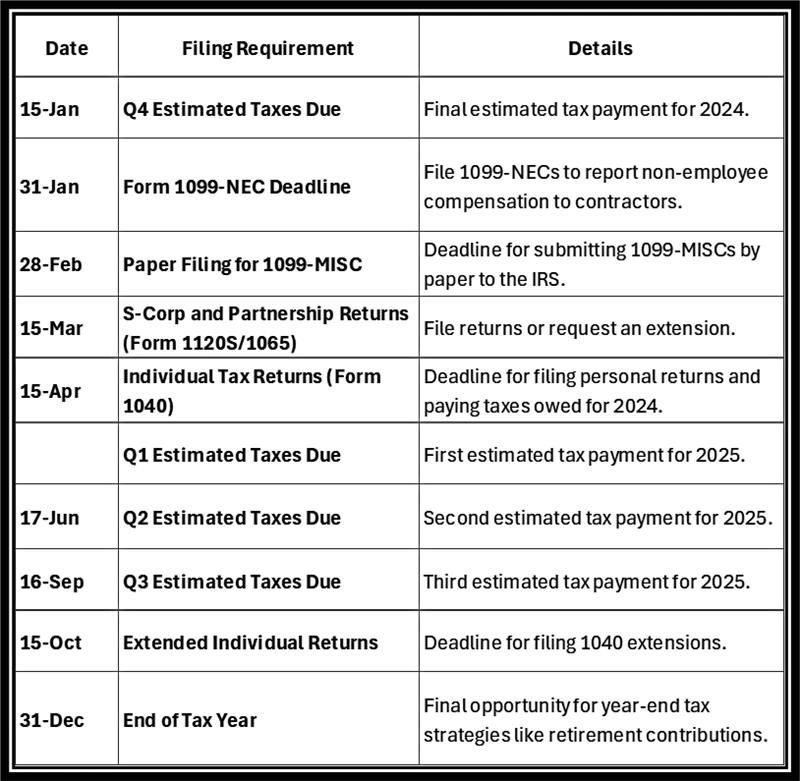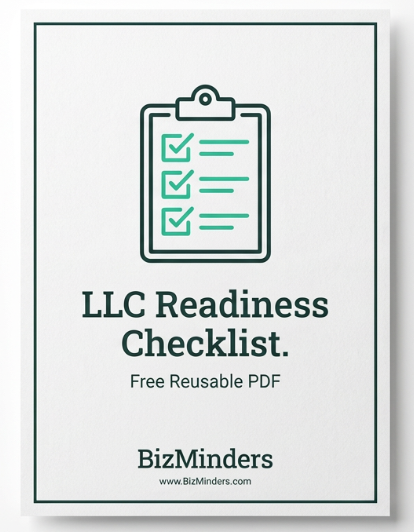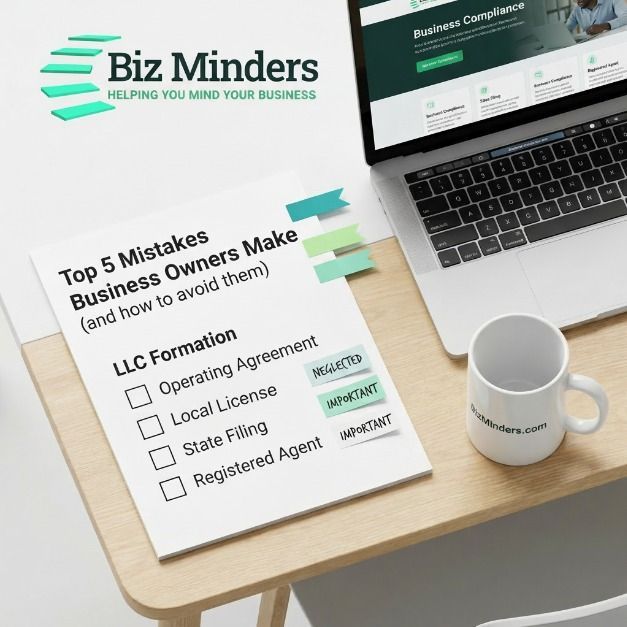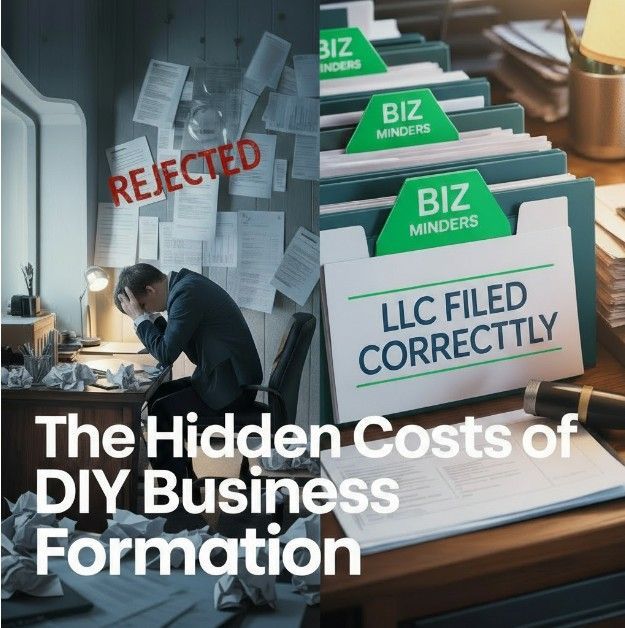Key Tax Dates & Tips for Entrepreneurs and Real Estate Investor
Share this article
As entrepreneurs and small business owners, staying on top of tax deadlines can make a big difference in your financial health. At Biz Minders, we’re here to help you mind your business with clarity and confidence. This post will cover crucial tax dates for 2025 and provide tailored tips for real estate investors, private money lenders, and those involved in seller financing.
Important Tax Dates for 2025
Staying compliant with tax deadlines is essential to avoid penalties and interest. Below is a chart outlining key tax dates for entrepreneurs and small businesses:

Special Considerations for Real Estate Investors
For real estate investors, taxes can be complex but also offer significant opportunities for savings. Here are some key points to consider:
1. Depreciation Benefits
Real estate investors can take advantage of depreciation, which allows you to deduct the cost of wear and tear on your properties. This "paper loss" often offsets rental income and lowers your taxable income.
- Pro Tip: Consider a cost segregation study for accelerated depreciation, especially for larger properties.
2. Passive Income and Losses
If your rental income is passive, you can offset it with passive losses. Active real estate investors may also qualify for additional deductions.
- Eligibility: To qualify as a real estate professional, spend more than 750 hours a year and over half your work time in real estate activities.
3. Private Money Lending Income
Interest income earned as a private money lender is typically taxable as ordinary income. However, you can deduct business-related expenses, such as legal fees or travel costs related to lending.
4. Seller Financing and Installment Sales
When offering seller financing, taxes can become more favorable with installment sale reporting. This allows you to spread out the recognition of gains over several years.
- Key Advantage: Defers part of the capital gains tax to future tax years, improving cash flow.
- Form Required: Use Form 6252 to report installment sales.
- Additional Requirement: Investors who have seller-financed a property must issue Form 1098 to the mortgagee to report the mortgage interest paid.
5. Schedule K-1 Reporting
Investors participating in partnerships or LLCs will receive a Schedule K-1 (IRS Form 1065) that reports their share of income, deductions, credits, and distributions.
- Income Taxation: The income reported on the K-1 is passed through to the individual investor's tax return and taxed at their personal income tax rate.
- Passive Loss Benefits: Losses reported on the K-1 can offset other passive income, reducing overall taxable income.
- Timing: Ensure timely receipt of the K-1 from the partnership to meet tax deadlines.
6. Watch Out for UBTI
If you’re investing through a Self-Directed IRA or 401(k), be aware of Unrelated Business Taxable Income (UBTI). Leverage or certain activities may trigger UBTI and require filing Form 990-T.
At Biz Minders, we specialize in providing personalized consulting for small businesses and real estate professionals. Let us help you navigate business compliance and keep you organized so you can focus on growing your business.
Need more guidance? Contact us today to schedule a consultation and learn how Biz Minders can help you mind your business!
Recent Posts







